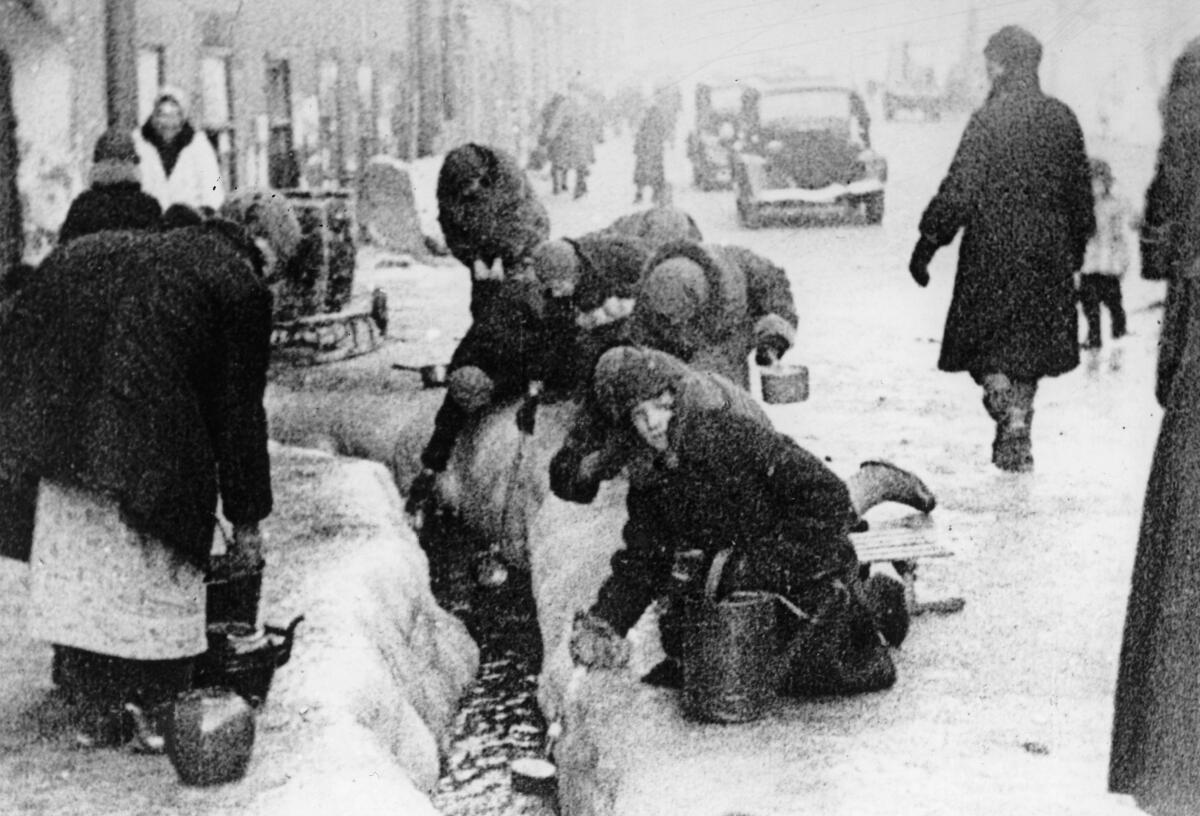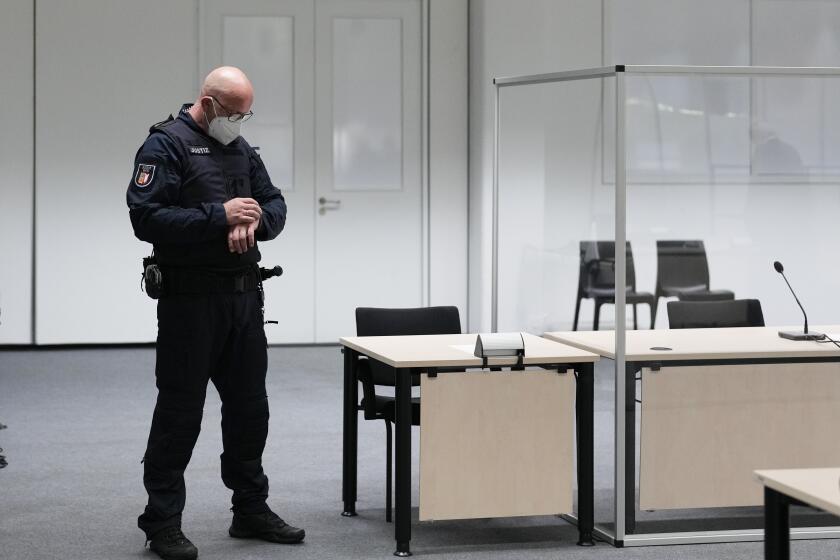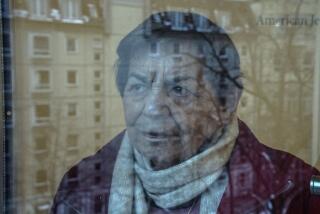Germany expands compensation program to more Holocaust survivors

- Share via
BERLIN — The organization that handles claims on behalf of Jews who suffered under the Nazis said Wednesday that Germany has agreed to extend compensation to Jewish survivors who endured the siege of Leningrad and two other groups that had not received any monthly pensions from Germany.
The payments will go to about 6,500 Holocaust survivors around the world, primarily in Israel, North America, the former Soviet Union and Western Europe, according to the New York-based Conference on Jewish Material Claims Against Germany, also known as the Claims Conference.
The new funds are targeted at about 4,500 Jews who survived the horrific siege of Leningrad, Russia, during World War II; about 800 who lived mostly in hiding in France during the Nazi’s reign of terror; and some 1,200 Jewish survivors from Romania.
All of them will start receiving a lifelong monthly pension of about $435 retroactively from July on.
“This was a landmark breakthrough,” Greg Schneider, executive vice president of the Claims Conference, said of the newly negotiated compensation arrangement with the German government.
“For many of these people, it’s the difference between deciding to pay the rent for the month or the medicines or buying food,” Schneider said in a telephone interview from New York with the Associated Press.
Sixteen women at the Buchenwald Nazi concentration camp were forced by the SS guards to work as prostitutes for 86 other inmates on the night of Aug. 7, 1943.
One recipient of the new monthly pension is Nonna Revzina, 85, who now lives in a Jewish senior citizens home in Berlin.
The retired librarian still remembers the beginning of the Leningrad siege by the Nazis in September 1941, when she was 5 years old. She still trembles when she recalls how she watched the events unfold from the sixth floor of her tenement building, when the city came under bombardment from Nazi forces, supply lines were cut off and hundreds of thousands died.
During an interview with the AP in her one-room apartment, Revzina wiped away tears as she talked about her father, who died of hunger and illness during the siege in 1942, and whose body her mother took away on a sled to a place nearby where hundreds of corpses were piled up. She still does not know where her father was buried.
The siege of Leningrad, which is now called St. Petersburg, lasted nearly 2½ years until the Soviet Army drove out the Germans on Jan. 27, 1944.
Marion Lewin and her twin brother, Steven Hess, were sent to the Nazi camps as young children and knew little of their previous life in Amsterdam — until now.
Estimates of the death toll vary, but historians agree that more than 1 million Leningrad residents died from hunger or air and artillery bombardments during the siege.
“But in addition to all of that, there were extra measures that the Germans did against Jews,” Schneider said, such as the Nazis dropping leaflets into the city urging residents to identify Jews and throw them out or sending spies into the city to incite riots and then blaming that on Jews.
“In the midst of this huge military battle, the Nazis were thinking not only about the Russians, not only about conquering Leningrad, but they were actually thinking about how to destroy the Jews and kill the Jews who were living in the city,” Schneider said.
Revzina said she was well aware that “had the Nazis conquered the city, all of us Jews would have been murdered immediately.”
A former secretary to the SS commander of the Nazis’ Stutthof concentration camp is going on trial on more than 11,000 counts of accessory to murder.
She immigrated to Germany in 1996, where her two adult children had moved a few years before her. In Berlin, Revzina helped raise her three grandchildren.
With the end of World War II now 76 years ago, Holocaust survivors are all elderly, and because many were deprived of proper nutrition when they were young, today they suffer from numerous medical issues. In addition, many live isolated lives, having lost their families in the war, and have a psychological burden from their persecution under the Nazis.
Many Holocaust survivors came out of the war with nothing and are still impoverished today.
Part of the Claims Conference’s annual negotiations includes working with Germany to expand the number of people eligible for compensation.
Start your day right
Sign up for Essential California for the L.A. Times biggest news, features and recommendations in your inbox six days a week.
You may occasionally receive promotional content from the Los Angeles Times.
Some of the 6,500 survivors who will start getting pensions now already received one-time payments in the past, but that will not bar them from receiving the new benefits, the Claims Conference said.
Since 1952, the German government has paid about $90 billion to individuals for suffering and losses resulting from persecution by the Nazis. In 2021, the Claims Conference will distribute approximately $625 million in direct compensation to more than 260,000 survivors in 83 countries, and will allocate approximately $640 million in grants to over 300 agencies worldwide that provide services for Holocaust survivors.
For Revzina, another $435 a month will allow her to enjoy the small pleasures of life that she wasn’t able to afford.
“The pension is very helpful for me,” she said. “I like going to cafes. I can do that more often now.”
Her granddaughter Lana Solovej was thrilled about the new pension.
“This is great news for her,” said the 23-year-old university student, who often helps her grandmother with daily household errands. “The new pension will make a great difference for my grandmother.”
More to Read
Sign up for Essential California
The most important California stories and recommendations in your inbox every morning.
You may occasionally receive promotional content from the Los Angeles Times.















